Scientific Advisory Board
SELECTBIO have assembled a distinguished advisory board including some of the world’s leading life science research experts. Their job is to review the abstracts we receive and make recommendations on the merit and suitability of the material submitted to our team of conference producers who then produce the final agenda.
SELECTBIO would like to thank the members of our Scientific Advisory Board who generously give their time to ensure that our conferences include the latest and most relevant scientific presentations possible.

| 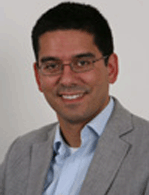 | Dr Andrew DeMello
ETH Zurich
Expertise: Microfluidics, LOC, POC Diagnostics
Andrew DeMello is currently Professor of Chemical Nanosciences at Imperial College London. Having obtained his PhD in Molecular Photophysics in 1995, he subsequently held a Post-Doctoral Fellowship in the Department of Chemistry at the University of California, Berkeley before returning to Imperial. Dr DeMello has spoken at over 100 events in the USA, Europe and Asia and has published 90 research papers. He sits on the Editorial Boards of Lab on a Chip, Chemistry World and Imperial College Press. In 2002 he was awarded the SAC Silver Medal by the Royal Society of Chemistry for his contributions to the Analytical Sciences and in 2004 became a Fellow of the Royal Society of Chemistry. | | 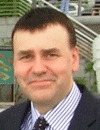 | Prof Anthony Davies
High Content Research Facility, Trinity College Dublin
Expertise: Gene Silencing, RNAi Screening, Cell Based Assays
Dr Anthony Mitchell Davies has worked in cell based assay development for over a decade and is the Director of the High Content Facility at Trinity College Dublin. Where he has been responsible for the set up and running, of one of the earliest dedicated academic High Content Screening Units in Europe.
Dr Davies’s personal research interests are focused on cardiac biology and the use of primary cardiomyocytes in drug discovery applications. His research is also strongly focused on miniaturization of high content assays and development of improved environmental control for these cell based systems. | | 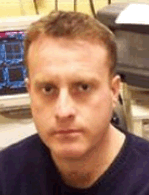 | Prof Christopher Hewitt
Loughborough University
Expertise: Stem Cells, Bioprocessing, Cell Culture
Chris graduated with a first class honours degree in Microbiology from Royal Holloway College, University of London in 1990. He then went to the University of Birmingham to study for his Ph.D. in Biochemical Engineering where he worked on the synthesis of alpha-amylase by Bacillus amyloliquefaciens under the supervision of Professor Gerald Solomons.
Chris stayed at Birmingham for a further 13 years first as Lecturer then Senior Lecturer, developing his research work at the Life Science/Engineering interface. In October 2006, Chris came to Loughborough University to take up a new chair in Biological Engineering and is now busy establishing Loughborough's Centre for Biological Engineering (CBE), of which he is co-founder. | |  | Prof Dolores Cahill
University College Dublin
Expertise: ADME
Prof. Cahill received her degree in Molecular Genetics from Trinity College Dublin (1989) and her PhD in Immunology from Dublin City University in 1994. She was group leader of the Protein Technology Group in the Max-Planck-Institute of Molecular Genetics, Berlin, Germany (1996-2003) She co-founded a biotechnology company, Protagen AG (www.protagen.de) in Dortmund to commercialise this technology. Since 2005, she is Professor of Translational Science at the UCD School of Medicine and Medical Sciences.
Her research, publication and patent record is in high content protein/antibody arrays and their biomedical applications. Application include the characterisation of antibodies specificity (including therapeutic antibodies), biomarker discovery validation, diagnostics, assay development, protein-interaction studies, proteomics, large scale/systems biology research.
She is a member of a number of Editorial and Science Advisory and Review Boards. For the past 10 years she has been involved in policy development in the areas of science, technology and innovation, including in the EU Health, Innovation and Infrastructure. Since 2003, she is a Member of the Irish Government’s Advisory Science Council (ASC) (www.sciencecouncil.ie), appointed by the Minister for Industry, Trade and Employment. For the past ten years, she is on a number of Science Advisory & Review Boards, including for BMBF/DLR in Germany; BBSRC in the UK; Vinnova in Sweden. She has received prizes for her research, including the prestigious BMBF ‘BioFuture’ Award from the German Minister of Science. She was awarded the Federation of European Biochemical Societies (FEBS) 2009 Award for her research & its significance. Other recipients of this award include Prof. J. Craig Venter & Prof. Robert Huber. | |  | Dr Gyorgy Keseru
Gedeon Richter
Expertise: Discovery Chemistry, Medicinal Chemistry, Drug Discovery
György M. Keseru obtained his Ph.D. at Budapest, Hungary and joined Sanofi-Aventis CHINOIN heading a chemistry research lab. He moved to Gedeon Richter in 1999 as the Head of Computer-aided Drug Discovery. He earned D.Sc. from the Hungarian Academy of Science in 2003 and he was invited for a research professorship at the Budapest University of Technology and Economics. Since 2003 has been responsible for lead discovery activity and in 2007 he was appointed as the Head of Discovery Chemistry at Gedeon Richter. He contributed to the discovery of the antipsychotic cariprazine that is progressing to NDA filing in 2012. His research interests include medicinal chemistry, drug design, and in silico ADME. He has published over 150 papers and more than 10 books and book chapters. | | 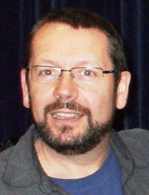 | Dr John Langley
University of Southampton
Expertise: Mass Spectrometry, Separation
John’s interest in mass spectrometry was sparked during his final year project at Swansea University and pursued through his PhD at the London School of Pharmacy, under the supervision of Mike Baldwin. Since 1988 Dr Langley has led Southampton University’s MS Facility which has since grown to include 10 spectrometers. His current interests lie around MS fragmentation, including the use of computational methods, hyphenated approaches (GC-MS, HPLC-MS & SFC-MS) and the analysis of petrochemicals. As a competent Chartered Chemist Dr Langely was formerly Chair of the British MS Society (2008-2010) and is currently Chair of the RSC Separation Science Group, as well as a prominent member in numerous other well-renowned societies. | |  | Dr John Spencer
University of Sussex
Chemical Probes, Medicinal Chemistry, Microwave Chemistry
John Spencer is a graduate of Sussex University, with a PhD from the Universite Louis Pasteur, Strasbourg and a postdoctoral fellowship at the ETH, Zurich. He spent 10 years in the Pharmaceutical Sector as a medicinal chemist, notably 5 years at the James Black Foundation, heading parallel synthesis, before embarking on an academic career (Reader, Greenwich, 2006-2012) and is now back at Sussex as a Reader in chemistry. His research interests are centred on the synthesis of chemical probes in medicinal chemistry. He has authored over 100 publications, patents and book chapters and has successfully supervised 6 PhD students to completion. He is an editorial board member of Future Medicinal Chemistry, Cogent Chemistry and Scientific Reports (Nature group) and has current funded projects on p53 mutant stabilisation (Worldwide Cancer Research), Niemann Pick C (Niemann Pick Research Foundation) and an EPSRC AstraZeneca-funded iCASE award. | | 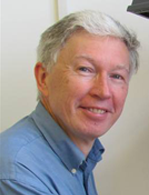 | Dr Jonathan Mason
Heptares Therapeutics Ltd
Chemistry / Fragment Based Lead Discovery / GPCRs
Dr. Jonathan Mason is a global Pharma experienced leader and scientific expert for drug design technologies (computational medicinal chemistry / CADD, structural biology, in silico ADME/tox etc) with over 30 years of pharmaceutical drug discovery experience. He currently has roles as a Senior Research Fellow at Heptares Therapeutics Ltd (UK) leading CADD approaches and as a consultant Chief Scientist at Lundbeck Research (Denmark) for predictive technologies and drug design.. He has previously led teams involving Computational Chemistry, Structural Biology, Medicinal Informatics and Knowledge Discovery at Pfizer in the UK (Executive Director MISD) and Bristol-Myers Squibb in the US (Director SB&M), following many years at Rhône-Poulenc Rorer (now Sanofi) in the UK, France and US, building and leading Computer-Assisted Drug Design teams. Dr. Mason started his career as a medicinal chemist.
He has been a pioneer in the development and use of 3D pharmacophore fingerprint methods for both protein structure-based drug design (SBDD) and ligand-based similarity/diversity approaches, together with de novo design & target class approaches. More recently he has driven the use of biological fingerprints to tackle attrition-related problems including lead selection / differentiation and of binding-site water energetics to bring new perspectives for druggability and ligand design for GPCR and enzyme targets.
| | 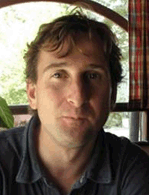 | Dr Julian Griffin
University of Cambridge
Expertise: Metabolic Profiling, Metabolomics
Jules Griffin is a programme leader at the Medical Research Council Human Nutrition Research unit and a Senior Lecturer at the University of Cambridge. He is also a member of the Cambridge Systems Biology Centre and MRC Centre for Obesity and Related Disorders (MRC CORD) at Addenbrooke’s Hospital, Cambridge. He is developing NMR and mass spectrometry based metabolomic tools for identifying metabolic biomarkers associated with genetic modification, drug toxicity and understanding the control of metabolic pathways. Although primarily focused on mammalian metabolism, he has also worked with a range of fundamental model organisms including fruit flies, C. elegans, zebra fish, and yeast.. | | 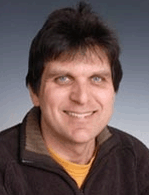 | Prof Mark Bradley
University of Edinburgh and DestiNA Genomics Ltd
Expertise: Chemistry, Structural & Computational, Chemical Biology, Microarrays
Professor Mark Bradley was awarded a first class degree in chemistry, from Oxford University in 1986, and performed his D.Phil under the supervision of Sir Professor Baldwin. This was followed by a period of post-doctoral research at Harvard Medical School with Professor Walsh in the area of molecular biology. He worked at the University of Southampton from 1992-2004 as a Royal Society University Research Fellow, during which time he was awarded a personal chair in Combinatorial Chemistry. He then took up his current position as Professor of High Throughput Chemical Biology in Edinburgh. Prof Bradley is the winner of numerous awards including the 2006/7 Novartis lectureship and was recently elected to the Royal Society of Edinburgh. He has also published over 180 articles. | | 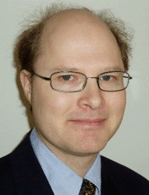 | Dr Martin Dufva
Technical University of Denmark
Expertise: Microfluidics, LOC, Cell Culture, Microarrays
Martin Dufva received his M.Sc. in 1998 and his PhD in 2001 both from the Göteborg
University (Sweden). Martin Dufva currently holds an associate professor position at the
Department of Micro and Nanotechnology at the Technical University of Denmark. Leading
the Fluidic Array System and Technology (FAST) group, his research is orientated towards
molecular biology on chip, with the microarray of various forms as core technology. Martin
Dufva has published about 30 scientific papers in various fields of microarray technology and
cell culture chip technology. | |  | Dr Natasha Paul
TriLink BioTechnologies
Expertise: Chemistry and Biochemistry
Natasha Paul has over 15 years of experience in the fields of nucleic acid chemistry and biochemistry. Her graduate work under Dr. Donald E. Bergstrom at Purdue University involved the synthesis and enzymatic recognition of modified nucleosides by DNA polymerases. Her postdoctoral studies under Dr. Gerald F. Joyce at the Scripps Research Institute focused on in vitro evolution and characterization of ribozymes and deoxyribozymes. At her current position as a Senior Scientific Investigator at TriLink BioTechnologies, Inc., Dr. Paul is developing new chemical tools for biological applications. TriLink’s R&D group has ongoing projects for novel PCR, sequencing, library preparation, microarray, and ligation-based technologies. | | 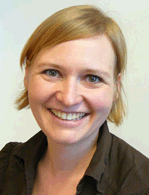 | Dr Nicole Pamme
University of Hull
Expertise: Microfluidics, LOC, Analytical Chemistry
Dr Nicole Pamme is a lecturer in Analytical Chemistry at the University of Hull (UK). Her research is focused on bioanalysis in microfluidic devices, in particular applications of magnetism. She obtained a degree in Chemistry from the University of Marburg (Germany) in 1999. This was followed by a PhD in Microfluidic Chemistry at Imperial College London (UK) with Prof. A. Manz. In 2004, she moved to Tsukuba (Japan) as an independent research fellow in the International Centre for Young Scientists (ICYS) based at the Japanese National Institute for Materials Science. She was appointed as a lecturer in Hull in 2005. | | 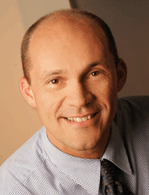 | Prof Oliver Kappe
University of Graz
Expertise: Chemistry
Oliver is the Professor of Organic Chemistry and Director of the Christian Doppler Laboratory for Microwave Chemistry at the University of Graz, Austria. Preceding this, he worked at the Universities of Queensland, Atlanta, Tokyo, Sassari and Orlando but decided to pursue his independent career back in Graz where he originally studied for his diploma and doctoral degrees, under the supervision of Professor Gert Kollenz. Since 2011 he has held the position of Professor of Technology of Organic Synthesis and has a broad array of research interests. As an author of around 250 articles and numerous books Prof Kappe is Editor-in-Chief of the Journal of Flow Chemistry and has received multiple awards, notably the 2004 Prous Science Award from the European Federation for Medicinal Chemistry. | | 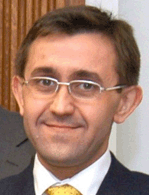 | Dr Paul Watts
Nelson Mandela Metropolitan University, South Africa
Expertise: Flow Chemistry
Prof. Paul Watts graduated from the University of Bristol in 1995 with a first class B.Sc. in chemistry. He continued his studies at Bristol, obtaining a Ph.D. in bio-organic natural product chemistry in 1999. His Ph.D. focussed on the synthesis of isotopically labelled compounds, for use in determination of biosynthetic pathways to polyketide-derived natural products.
Paul subsequently worked as a postdoctoral research associate at the University of Hull, where he pioneered organic synthesis in micro reactors. In February 2002, he was appointed as a lecturer at the University of Hull, being promoted to full professor in August 2011. At the University of Hull he led the micro reactor and flow technology group, where the research resulted in the publication of over 90 highly cited papers in peer reviewed journals on the topic of continuous flow organic synthesis.
In February 2013, Prof. Watts moved to Nelson Mandela Metropolitan University (South Africa) to hold the distinguished position of ‘Research Chair in Microfluidic Bio/Chemical Processing’.
| | 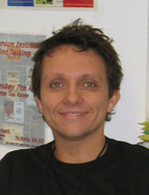 | Dr Paul Hurd
Queen Mary, University of London
Expertise: Epigenetics
Dr Hurd is a Principal Investigator at Queen Mary University, London, and has long-standing interests in the mechanistic aspects of epigenetic systems. During his Ph.D. studies with Professor David Hornby at the University of Sheffield, he characterized the mechanism of inhibition of DNA methyltransferases by a novel nucleotide analogue. He then transferred to the University of Cambridge, to work with Professor Tony Kouzarides, where it became increasingly evident that the post-translational modification of histones plays a central role in establishing, regulating and orchestrating DNA based processes. The sheer variety and complexity of histone modifications, in addition to their dynamic nature, persuaded him to begin characterising novel histone modifications. Subsequently, Paul began to apply the next-generation DNA sequencing to analyze various epigenomes. | | 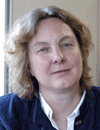 | Prof Sabeth Verpoorte
University of Groningen
Expertise: Lab-on-a-Chip
E. Verpoorte has more than 20 years of research experience in the lab-on-a-chip field, and has been head of the Pharmaceutical Analysis Group in the Department of Pharmacy at the University of Groningen since 2003. Her present research has taken on a strong cell biological / pharmacological focus, and includes innovative joint projects with colleagues in pharmacokinetics and medical biology on integrated cell and tissue culture and analysis. Ongoing projects involve the development of advanced tools for cell analysis in conjunction with drug screening (chip-based human endothelial cell culture and analysis; development of an intestine–liver chip for ADME-Tox screening). Efforts have also focused on new particle separation strategies exploiting a unique recirculating flow pattern accessible only at the micrometer scale, as well as new approaches for two-phase flow control and continuous glucose monitoring. Verpoorte has published papers in top analytical chemistry journals. She is or has been involved in several international conference organizations and journal editorial boards. | | 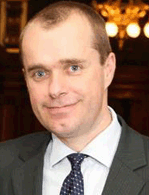 | Dr Till Bachmann
University of Edinburgh
Expertise: Diagnostics, Biodetection, Theranostics
Dr Till Bachmann is Reader in Personalised Medicine in Infectious Diseases and Deputy Head of the Division of Infection and Pathway Medicine, University of Edinburgh. Till has a PhD in biosensors from research at University of Stuttgart and The University of Tokyo and a German Habilitation in Analytical Biotechnology. His scientific interests focus on molecular diagnostics and point of care detection of infectious diseases of important human pathogens such as S.aureus and E.coli and their antimicrobial resistance including ESBL, CRE and MRSA. This also includes research on novel detection modalities and discovery of biomarkers of bacterial response to antimicrobial therapy, working towards prognostic tests for Precision Medicine of infectious diseases. Till has published extensively, is a named inventor on various patent applications, and he has led a number of large interdisciplinary diagnostic projects. He is engaged in a number of undergraduate and graduate teaching programmes and is Programme Director of the new online MSc course on Clinical Microbiology and Infectious Diseases.
Till has a strong track record on hosting international conferences and has a wide international collaboration network including links to India and Japan where he recently co-chaired the workshop on Biosensors for Healthcare at the UK Embassy in Tokyo and he was hosting the Workshop on Next Generation Tools for DNA Diagnostics in February 2015 in Edinburgh. Till keeps close links with the diagnostics industry and as such is Scientific Programme Director for Mölnlycke Health Care Scotland, member of the Scientific Advisory Board of the Biomedical Diagnostics Institute in Dublin, advises NESTA on the Longitude Prize in Antibiotics and is member of various advisory panels for major funding bodies including Innovate UK and the EU Innovative Medicine Initiative. |
|
